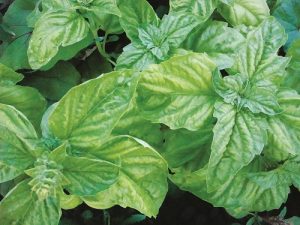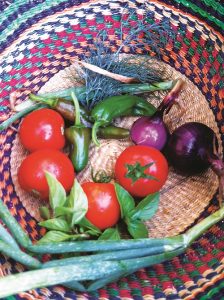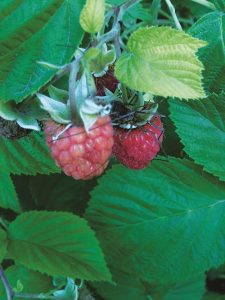With its rich soil and four seasons, the Inland Northwest is a great place to plant a thriving garden, but who has time for that? Spring is here, and the lake is calling! If you could cultivate your green thumb and still have all the time you want to play, would you? Here are some practical tips for growing a few edibles, while maintaining your outdoor enthusiast status.
1. Forgo the seeds
Planting and sprouting your own seeds can be unpredictable and takes patience. I’d rather wait for water to boil. Instead, hit up a local farmer’s market (usually start in May) for plant starters. The farmers have already done the tedious work for you and offer a wide selection of organic and conventional herbs and veggies already green and growing. Of course you still have to plant them in something.

2. Forget planting
If digging up a corner of your flower bed, finding a pot, buying dirt, or reading up on when to plant is too much effort, look for a basket or pot already “landscaped” with herbs, chives and maybe lettuce or leafy greens. Some farmer’s market vendors offer these, as well as nurseries and home improvement stores. Hang or place your little ready-made garden in a partially sunny outside space, pour some water on it every other day, and reap a little harvest all summer. They are also rather pretty to look at.
3. Use that window sill
Don’t have a yard? Or maybe your yard, driveway and porch are currently storage spaces for skis, boats, snowshoes, paddle boards, jet skis and bikes for every occasion? Transform one of your under-utilized window sills into a mini greenhouse. Basil, thyme, mini peppers, oregano, wheatgrass – all thrive by a sunny window. And you can keep them in their starter pots or grow them in a jar or trimmed down plastic water bottle. Just be sure to stick your green thumb into the soil once in a while to make sure it is still moist – a little dab of water will do if it’s not. One warning: beware the gnats that can plague indoor plants. To avoid them, get clean soil, don’t over water, and you can even spray your plants and dirt with a soap and water mixture. Not too hard for a season of fresh basil for your bruschetta!

4. Pay someone else
Still feel you just can’t let those little green things cut into your outdoor recreation? Pay someone else to grow for you! Joining a local CSA (like the Winniford Family Farm, winnifordfamilyfarm.com) or signing up for a regional produce delivery service (like Full Circle, www.fullcircle.com) ensures that you have a continuous stream of fresh vegetables, fruit, herbs and more, straight from someone else’s farm to your kitchen. You will also be supporting local farmers who actually like to do all that stuff more than you do.
However you grow and play, be sure to encourage urban growing and local farming. Your food will taste better, and the more localized our food, the more healthy our families, community, economy and environment will be. Now, get out there and have fun! //

Grow Your Own Food Class
This basic gardening class will teach you how to grow vegetables in the Inland Northwest. It runs from 12:30 to 3:00 p.m. on April 5. The class, which is part of a series, is $12 per person. All classes will be held at the Extension Office at 222 N. Havana St, Spokane. Register or find more info online at: www.spokane-county.wsu.edu/spokane/eastside/education_class_flyers/Grow_Your_Own_Food.













